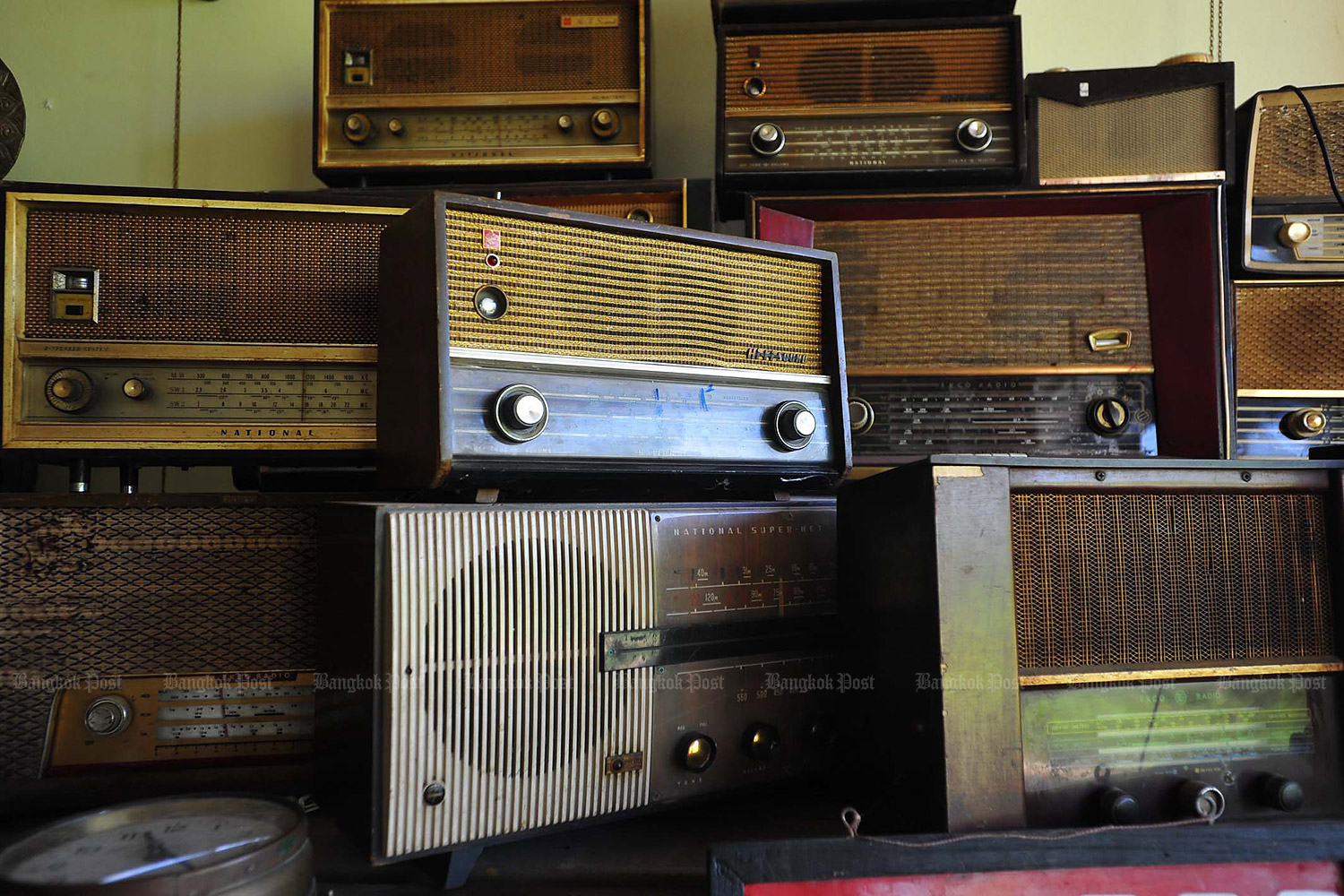
The renewed interest in transistor radios is just so bemusing, even to those who own a set and use it for news updates like myself.
The small portable radios had almost been forgotten until Prime Minister Prayut Chan-o-cha, during a visit to a flooded area on Tuesday, said that transistor radios may be the best way to keep people informed during major flood events.
Gen Prayut said if electricity and telephone communications went down, it would be difficult for the government to provide information to keep people informed. In such a situation, it might be necessary for them to get their information via transistor radios -- as happened during the massive flood in 2011 whenever there was a power cut.
Sales of transistor radios have since increased following his comments.
In terms of communication for disaster management, the prime minister is right.
Despite this, I can't help worrying about folks who earnestly follow our prime minister's limited advice. Which station will they tune in to and when? Such points need to be thought out in a unified manner. Right now, state agencies create their own online sites to update information and send warnings.
Indeed, countries vulnerable to frequent natural disasters, such as Japan, have made use of national radio along with other mediums such as an SMS service delivered to mobile phones, giving people information that they can use to deal with a crisis.
But that is not the case in Thailand, where radio has been out of fashion for some time. State agencies that are responsible for handling disaster management for things such as forest fires, landslides, floods or earthquakes, create their own social media sites for giving updates, instead of sending data to one single central agency that knows how to deliver a message to the masses.
Indeed, the central government had a plan for disaster management communication after the 2011 epic flood. Under the plan, national television and all radio stations were obliged to relay signals and messages from central government radio during the emergency situation. Such a communication model has been used by coup makers for decades. In each coup d'etat, national TV and radio stations were obliged to broadcast messages from the junta government. However, this communication model is rarely used in natural disaster management communication.
Now I get frustrated when I search for data on floods and disaster warnings. Government agencies still work in a silo fashion. I need to go to Facebook, Line or the websites of different agencies to get all the information. Even worse, each agency seems to have its own platform and uses its own technical jargon that laymen might not comprehend. I always wonder whether villagers understand what technical jargon such as 100 million cubic metres actually means.
Suffice it to say, the communication for disaster management is disastrous!
Maitree Jongkraijug, community leader of Ban Nam Khem village in Phangnga province which was hit by the Boxing Day Tsunami in 2004, told me in a phone interview early this week that Thailand has suffered from a "communication breakdown" in terms of disaster management.
"We cannot create a communication model that can send messages to villagers for them to make the right decision," he said. "In every crisis, each agency uses its own platform instead of coordinating with other agencies. So, there is far too much-fragmented data."
I have known Mr Maitree since covering the tsunami, and I returned to the Ban Nam Khem community several times after to cover its recovery. The community has become a model for disaster management in Thailand with Mr Maitree becoming an expert on disaster management who has trained communities countrywide on how to handle natural disasters.
Over a decade after, villagers at Ban Nam Khem still regularly practise evacuation. The community uses short-wave radios and a central loudspeaker to update villagers with information. The community opened a local radio station to communicate community news as well as issue warnings about severe weather. More local radio stations began to operate but would close due to a lack of funds, notably needed for when applying for licences as required by the National Broadcasting and Telecommunications Commission. Mr Maitree wished the central government would help local communities open local radio stations for community purposes.
For him, Gen Prayut's latest talk on transistor radio is just rhetoric.
"PM Prayut just talks about transistor radios, but radios are just downstream. What he needs to do is create content and a system for state agencies to make use of radios during a natural disaster. He just has to walk the talk"
